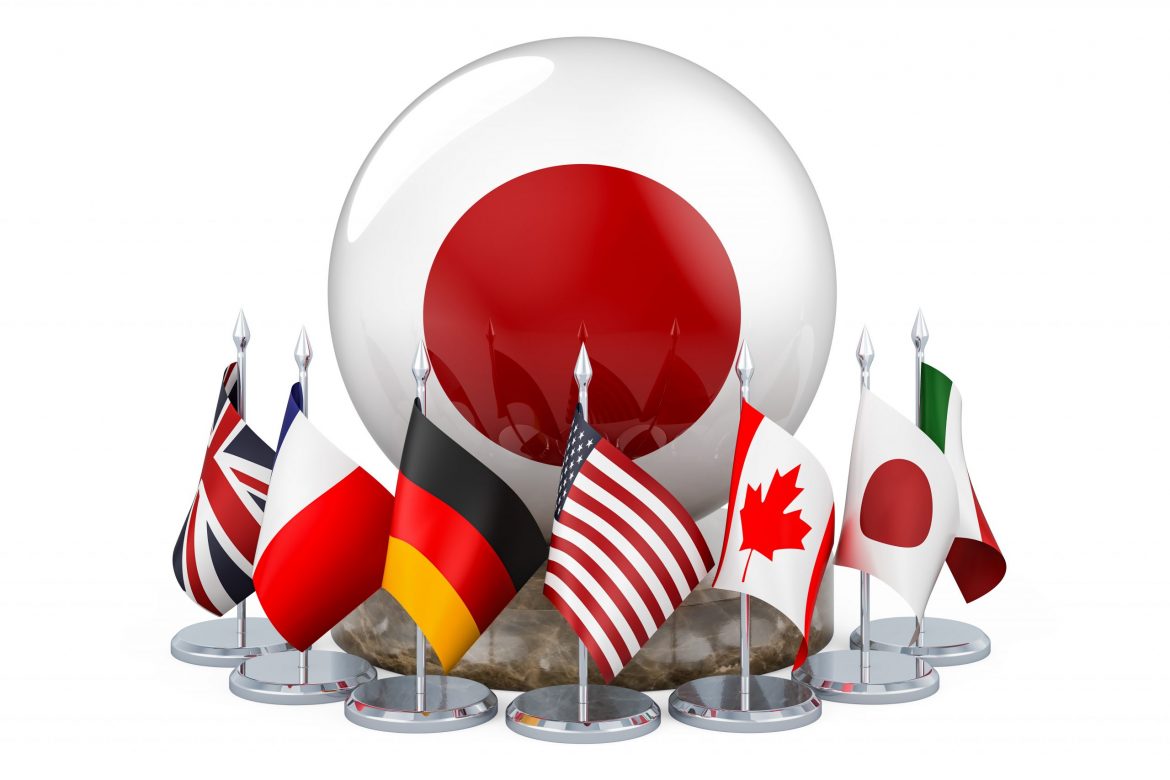Japan is set to make another attempt to convince G7 and G20 leaders to adopt streamlined crypto regulations.
Per Kyodo News, the Japanese government is set to take advantage of the fact that it will host a G7 summit in Hiroshima this May. Host nations are allowed to add items to the summit’s agenda.
It also wants to raise the matter at the G7 meeting of finance ministers and central bank chiefs that will be held in Niigata in mid-May. Top financiers will conclude their meetings just ahead of the general meeting.
And Tokyo also hopes to raise the matter with the G20 – when finance ministers and central bank heads meet in Washington next month.
Quoting Japanese government “officials,” who “spoke on condition of anonymity,” the media outlet reported that “issues associated with cryptoassets” were “likely to be on the agenda” at the G20 meeting.
The media outlet reported that Tokyo is hopeful of convincing fellow G7 and G20 members to pen a “joint declaration” that would help “protect” crypto “users.”
Japan to Push G7, G20 for Crypto Regulation – Again
The Japanese government appears to be hopeful that the zeitgeist among political and financial leaders is in its favor. And it seems to hope that the high-profile collapse of the FTX exchange will help its case.
Japan’s crypto industry is one of the most tightly regulated in the world. The nation’s crypto exchanges are subject to a strict set of rules. These include regulations that control the separation of client-owned assets and exchange funds, as well as strict prohibitions on unlicensed overseas exchanges.
Some industry insiders – as well as leading politicians – have complained that this policy has led to many Japanese firms relocating overseas.
But Tokyo appears undeterred. At a previous G20 summit hosted in Japan, the government distributed a crypto regulation “manual,” urging international leaders to adopt similarly tight regulatory policies.
In the manual, Tokyo gave the example of its own watershed crypto “incidents” – the Mt. Gox hack of 2014 and the Coincheck hack of 2018. It claimed that these incidents had led Japan to implements its own crypto regulations, and suggested that other nations should follow suit.
Japan is set to make another attempt to convince G7 and G20 leaders to adopt streamlined crypto regulations.
Per Kyodo News, the Japanese government is set to take advantage of the fact that it will host a G7 summit in Hiroshima this May. Host nations are allowed to add items to the summit’s agenda.
It also wants to raise the matter at the G7 meeting of finance ministers and central bank chiefs that will be held in Niigata in mid-May. Top financiers will conclude their meetings just ahead of the general meeting.
And Tokyo also hopes to raise the matter with the G20 – when finance ministers and central bank heads meet in Washington next month.
Quoting Japanese government “officials,” who “spoke on condition of anonymity,” the media outlet reported that “issues associated with cryptoassets” were “likely to be on the agenda” at the G20 meeting.
The media outlet reported that Tokyo is hopeful of convincing fellow G7 and G20 members to pen a “joint declaration” that would help “protect” crypto “users.”
Japan to Push G7, G20 for Crypto Regulation – Again
The Japanese government appears to be hopeful that the zeitgeist among political and financial leaders is in its favor. And it seems to hope that the high-profile collapse of the FTX exchange will help its case.
Japan’s crypto industry is one of the most tightly regulated in the world. The nation’s crypto exchanges are subject to a strict set of rules. These include regulations that control the separation of client-owned assets and exchange funds, as well as strict prohibitions on unlicensed overseas exchanges.
Some industry insiders – as well as leading politicians – have complained that this policy has led to many Japanese firms relocating overseas.
But Tokyo appears undeterred. At a previous G20 summit hosted in Japan, the government distributed a crypto regulation “manual,” urging international leaders to adopt similarly tight regulatory policies.
In the manual, Tokyo gave the example of its own watershed crypto “incidents” – the Mt. Gox hack of 2014 and the Coincheck hack of 2018. It claimed that these incidents had led Japan to implements its own crypto regulations, and suggested that other nations should follow suit.
